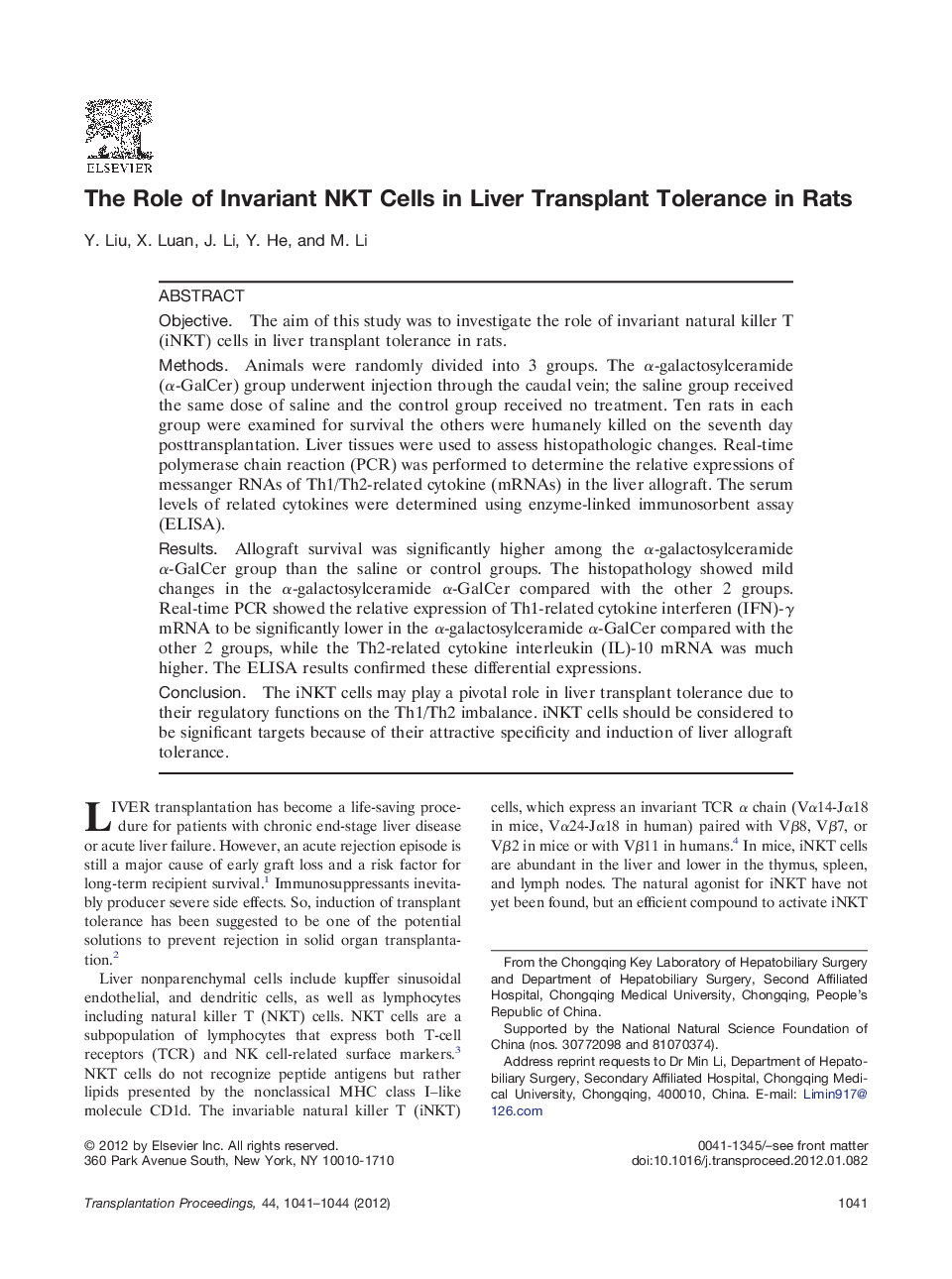| Article ID | Journal | Published Year | Pages | File Type |
|---|---|---|---|---|
| 4256858 | Transplantation Proceedings | 2012 | 4 Pages |
ObjectiveThe aim of this study was to investigate the role of invariant natural killer T (iNKT) cells in liver transplant tolerance in rats.MethodsAnimals were randomly divided into 3 groups. The α-galactosylceramide (α-GalCer) group underwent injection through the caudal vein; the saline group received the same dose of saline and the control group received no treatment. Ten rats in each group were examined for survival the others were humanely killed on the seventh day posttransplantation. Liver tissues were used to assess histopathologic changes. Real-time polymerase chain reaction (PCR) was performed to determine the relative expressions of messanger RNAs of Th1/Th2-related cytokine (mRNAs) in the liver allograft. The serum levels of related cytokines were determined using enzyme-linked immunosorbent assay (ELISA).ResultsAllograft survival was significantly higher among the α-galactosylceramide α-GalCer group than the saline or control groups. The histopathology showed mild changes in the α-galactosylceramide α-GalCer compared with the other 2 groups. Real-time PCR showed the relative expression of Th1-related cytokine interferen (IFN)-γ mRNA to be significantly lower in the α-galactosylceramide α-GalCer compared with the other 2 groups, while the Th2-related cytokine interleukin (IL)-10 mRNA was much higher. The ELISA results confirmed these differential expressions.ConclusionThe iNKT cells may play a pivotal role in liver transplant tolerance due to their regulatory functions on the Th1/Th2 imbalance. iNKT cells should be considered to be significant targets because of their attractive specificity and induction of liver allograft tolerance.
